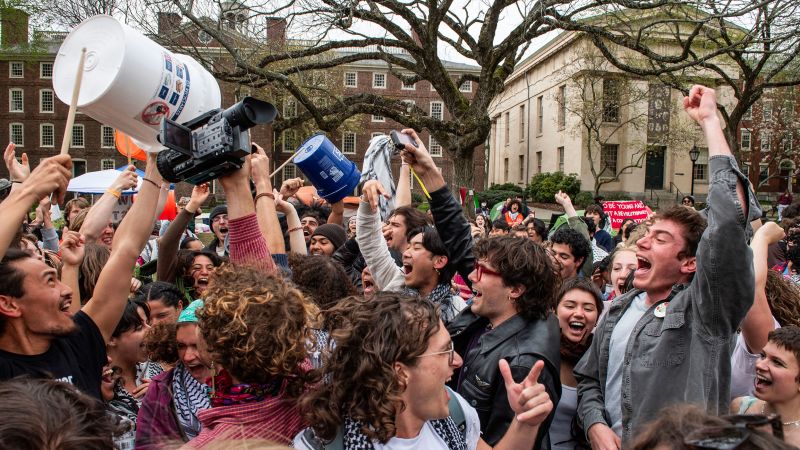After days of protests, pro-Palestinian encampments on Ivy League campuses Columbia and Brown were voluntarily taken down amid a backdrop of controversy and condemnation over the heavy police presence at Columbia. Other universities, such as Brown and Northwestern, were able to peacefully reach agreements with protesters, diffusing tense standoffs that have erupted on campuses across the country. Notably, the schools did not agree to fully divest from companies doing business in Israel, a common demand among student protesters.
Balancing free expression and campus safety is a challenging task for college officials, as highlighted by recent events. Schools that chose to engage in dialogue, rather than resorting to a heavy police presence, were able to navigate the situation more effectively. First Amendment experts stressed the importance of creating spaces for demonstrations while maintaining open lines of communication to find common ground with protesters.
Northwestern President Michael Schill set a tone of openness by expressing his personal views while also reaffirming the school’s commitment to free speech. Agreements reached by Northwestern and Rutgers included measures such as increased transparency and support for Palestinian students, as well as commitments to expand spaces for Arab and Muslim students on campus. Similarly, the University of Minnesota agreed to consider divestment and explore affiliations with Palestinian universities.
Brown University faced a history of student activism surrounding divestment demands, with recent encampments leading to arrests and tension on campus. Despite this, the university opted for dialogue and compromise, leading to an agreement for divestment discussions and assurances that those involved in protests would not face retaliation. The approach was seen as a positive step towards resolving differences through dialogue rather than confrontation.
While the agreements have been seen as steps towards resolution, they have faced criticism from various quarters, including calls for Northwestern President to resign and labeling student protesters as terrorists. Maintaining a balance between accommodating protests and addressing concerns while preventing violence and disruptions on campus is a delicate task for college administrators, but efforts have been made to engage in constructive dialogue with protesters.
As universities continue to navigate the complex landscape of student protests, agreements reached with protesters serve as potential models for addressing contentious issues through dialogue and compromise. While challenges and criticisms remain, the recent agreements at various universities signal a willingness to engage in discussions and find common ground on issues related to divestment and support for Palestinian students.


